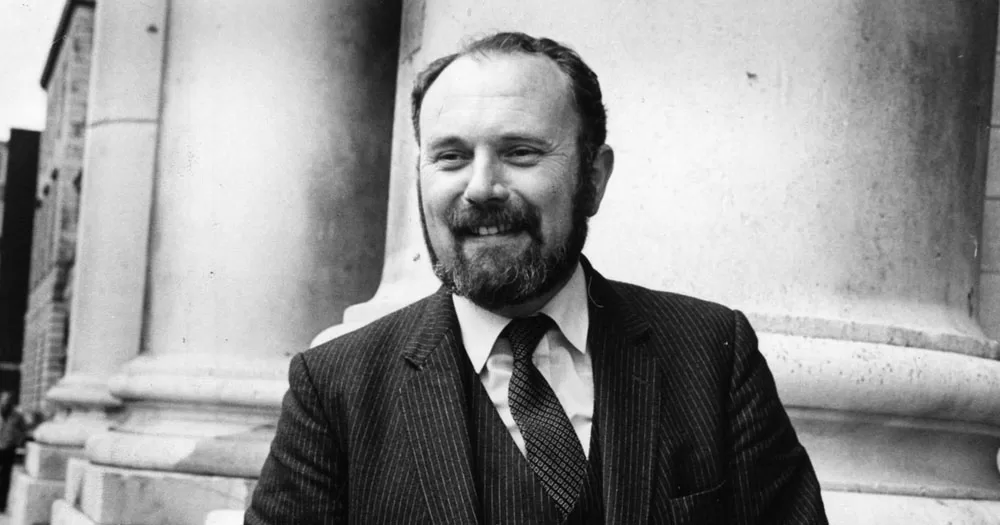Today, October 26, 2023, marks the 35th anniversary of a monumental ruling by the European Court of Human Rights (ECtHR) against the Irish State in the case of Norris v Ireland.
The decision had been five years in the making, but it was one which would irrevocably change the landscape of LGBTQ+ rights in this country, and arguably globally, for generations to come.
The case began when Senator David Norris, a Trinity College lecturer, argued that the Offences Against the Person Act, 1861, which criminalised “buggery”, and the Criminal Law Amendment Act, 1885, which referred to “gross indecency” – also commonly known as ‘the blackmailers charter’ – were in breach of his right to privacy under the European Convention on Human Rights.
The archaic Victorian laws had been legislated for during British occupation but were adopted into the Irish statute books after the formation of the state, particularly as they had heavy backing from the Catholic Church.
They had legally permitted the wholesale persecution of gay men and had undoubtedly emboldened anti-LGBTQ+ sentiment for nearly a century.
In reality, Norris’s case had begun long before it was ever presented in Europe. In November 1977, Senator Norris set about challenging his right to privacy by bringing a case against the Attorney General to the High Court. However, the judge ruled against Norris, and in a later appeal to the Supreme Court, he was again unsuccessful.
Spurred on by the successful 1981 ruling of Northern Irish activist Jeff Dudgeon, who had challenged the British Government on the same grounds, Norris submitted his case to Strasbourg.
As a signatory to the European Convention on Human Rights, the verdict handed down by the ECtHR on October 26, 1988, meant that the Irish Government was obliged to amend the legislation.
Despite this, by October 1990, the Government still had not implemented any changes. Hence, Norris instructed his solicitors to re-submit his case to the ECtHR, seeking punitive damages due to the long delay.
Eventually, following intense lobbying by GLEN (Gay and Lesbian Network), the Irish Council for Civil Liberties and other community groups, the Irish Government finally passed the Sexual Offences Bill, 1993, on June 30, decriminalising same-sex sexual acts between consenting adults over the age of 17.
On a truly momentous occasion, the new legislation was signed into law by President Mary Robinson on July 7, 1993, almost 16 years after she had begun acting as legal counsel for Norris on his High Court case.
Whilst the 1861 and 1885 laws had only referred to sexual acts between men, the ramifications of their existence had had a profound impact on both the wider LGBTQ+ community but also on Irish civil rights in general.
As Norris highlighted in an interview in 2011, “I found very quickly that the mechanism of discrimination was exactly the same against women, against ethnic minorities, against (disabled people)…”.
Since then, the landscape of civil rights in Ireland has transformed significantly. Following a number of contentious referenda, further legal challenges, and constitutional reviews, the State introduced divorce (1995), civil partnership (2011), marriage equality for same-sex couples and gender recognition (2015), and abortion (2018).
Although these milestones and so many other civil rights wins that have occurred are not directly attributed to Senator Norris, Irish LGBTQ+ rights owe a debt of gratitude to his bravery in bringing his case to Europe.
© 2023 GCN (Gay Community News). All rights reserved.
Support GCN
GCN is a free, vital resource for Ireland’s LGBTQ+ community since 1988.
GCN is a trading name of National LGBT Federation CLG, a registered charity - Charity Number: 20034580.
GCN relies on the generous support of the community and allies to sustain the crucial work that we do. Producing GCN is costly, and, in an industry which has been hugely impacted by rising costs, we need your support to help sustain and grow this vital resource.
Supporting GCN for as little as €1.99 per month will help us continue our work as Ireland’s free, independent LGBTQ+ media.
